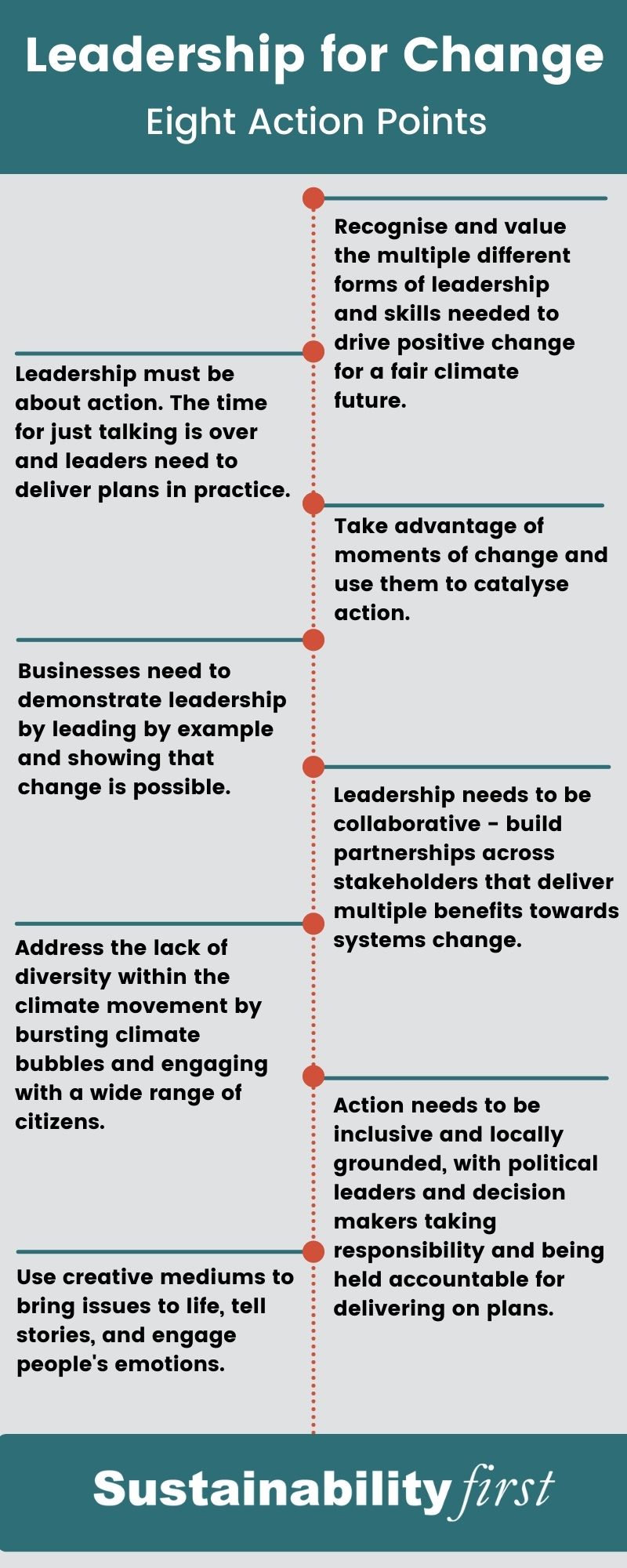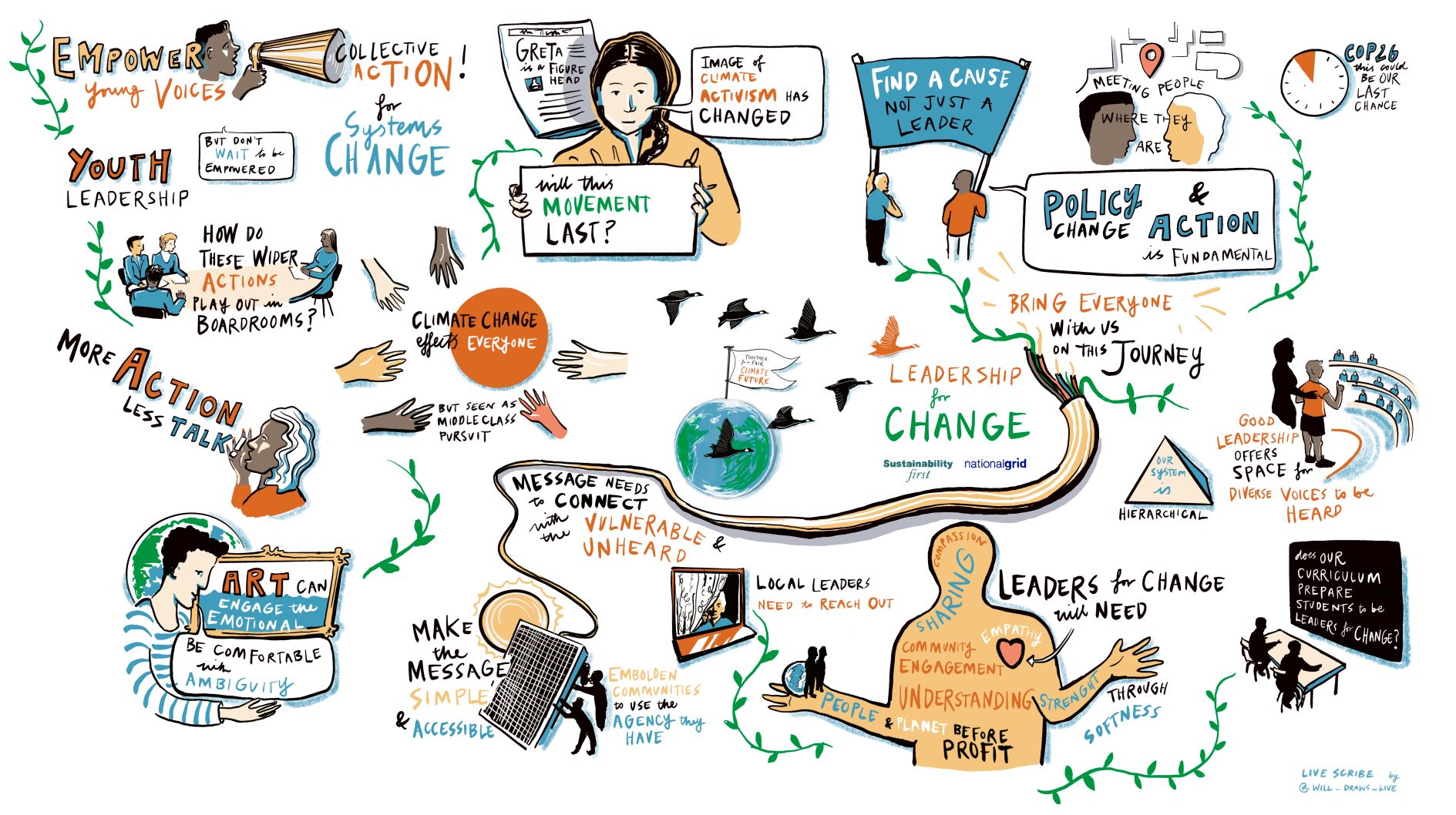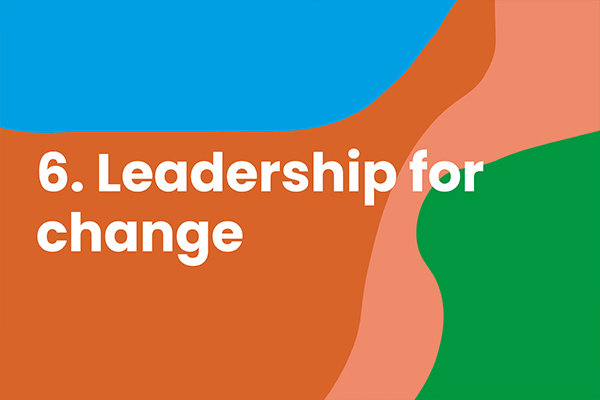Leadership for change
Together for a Fair Climate Future
Discussion 6: Leadership for change
Tuesday 29 June 2021
Leadership for Change, the final event in the six-part Together for a Fair Climate Future discussion event series, explored what it means to lead positive change for a fair climate future. The event explored different types of leadership and the areas in which leadership is urgently needed today, and it shared people's experience of leading positive change, across youth movements, business, the creative arts, and community organising. The event then moved onto discussing leadership skills and what strong leadership looks like. A key message from the event was that we need to ensure leadership leads to action at the scale and pace needed to respond to the climate emergency.

Leadership exists in many different forms and this event explored this – recognising and valuing the multiple forms of leadership and skills needed to drive positive change: from individual, figurehead leaders to networked leadership and leadership as distributed power. Softness, compassion, and empathy in leaders were highlighted as crucial for building trust and inspiring others to drive change.
Panellists emphasised that leadership must be about action – the time for just talking is over and political leaders, in particular, need to move beyond targets and ambitions to deliver plans in practice. As climate conversations moves from being niche issues into the mainstream, with the momentum of the youth movements, decision makers should take advantage of this moment to catalyse action and accelerate outcomes and solutions. Businesses also need to demonstrate leadership, by leading by example and showing that action and change are possible.
"Good climate leadership is action … I don't really want conversations anymore…what I want is for our governments and for our world leaders to be leading by example and to be taking these big steps needed" – Dr Mya-Rose Craig
Panellists also highlighted that climate action cannot demonstrate leadership or be successful unless it is diverse, inclusive, and engages meaningfully with citizens and communities. The agency of local people and communities needs to be emboldened so that action and policy is people-centred, that communities are driving agendas forward, taking control of action plans in their areas, and ensuring that this is at the heart of change.
"In terms of leadership, we need people to bring everyone with us on this journey and we need to be inclusive. I would say part of that is about empowering people and it is about creating a cleaner and a fairer future so that everyone can be part of it and participate and be on this journey and benefit from it." – Afsheen Kabir Rashid
However, panellists stressed that decision makers must not place all the burden for problem solving onto communities – decision makers need to recognise their own part in systems and role in redressing power imbalances, by building partnerships to deliver action on systems issues.
"Inclusivity isn't the same as action and you have to be listening to those voices, not just capturing it on a piece of paper but capturing it in real actions and pushing the agenda forward" – Charlie Ogilvie

Live event illustration: William Bock – Visual Scribe
Panellists
- Duncan Burt - COP26 Director, National Grid (Chair)
- Stephen Bennett - Artist and Policymaker
- Dr Mya-Rose Craig - Founder and President, Black2Nature
- Afsheen Kabir Rashid - Co-Founder and Co-CEO, Repowering
- Charles Ogilvie - Director of Strategy, COP26 Unit, Cabinet Office
Project partner


